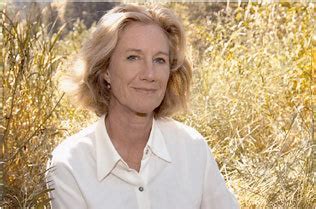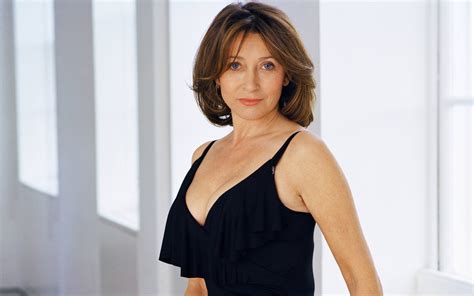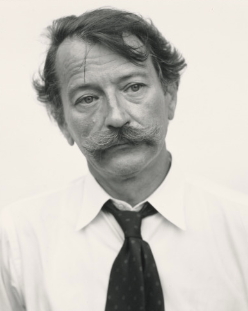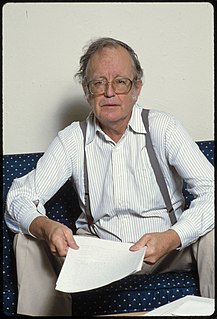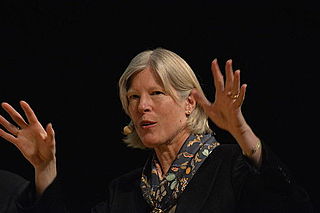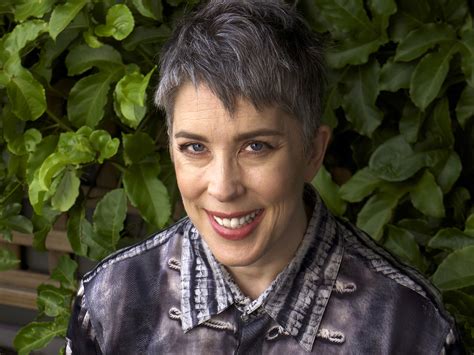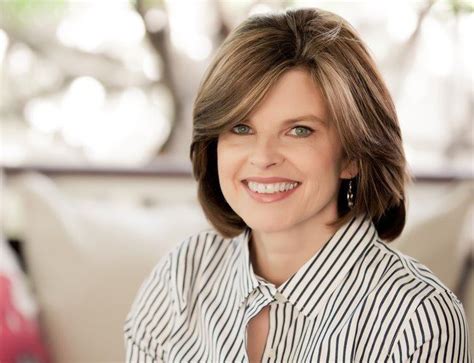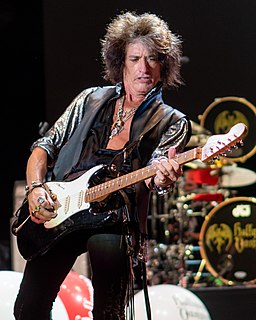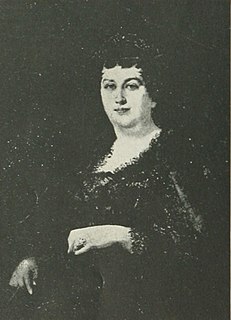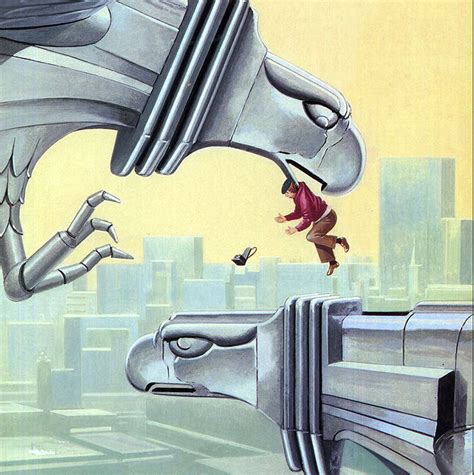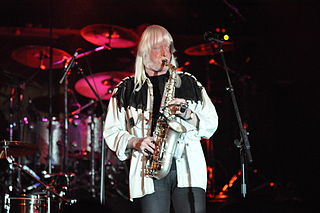Top 249 Fifties Quotes & Sayings - Page 4
Explore popular Fifties quotes.
Last updated on April 19, 2025.
I love taking on challenges. I think one of the funnest things in acting is creating a character - wrapping yourself around a character and bringing him to life. I love a lot of different genres. I'm not a big horror guy by any means but I love the challenge. But the fifties and sixties is where I feel the most comfortable.
One of the leading uses of photography by the mass media came to be called photojournalism. From the late 'twenties' to the early 'fifties' what might have been the golden age of this speciality - photographers worked largely as the possessors of special and arcane skills, like the ancient priests who practiced and monopolized the skills of pictography or carving or manuscript illumination. In those halcyon days the photographer enjoyed a privileged status.
The thing about eyewear is that it is so potent, There are very few accessories that, if you were not wearing anything, if you put on they would date you to a whole era. You could look the Thirties, the Fifties, and the Nineties just by your eyewear. It's like a pair of shoes because it is sculptural. It exists without a face. It tells a lot about where you are architecturally or aesthetically in a particular period in time.
People sometimes get ideas about us that are not of our creation. Journalists, for instance, have always wanted us to be something we're not. They've said that we have a big student fan-base, but that's simply not true. We have loads of older fans as well. Increasingly, ladies in their mid-fifties seem to like us.
Now, as I move through my fifties, I can be professional and domestic, creative and intellectual, patient and urgent. I have learned that we should never settle for someone else's definition of who we can be. Growing to this age, I realize, is kind of like feeling your voice deepen. It's still your voice, but it has more substance, and it sounds like it knows its own origins.
It was palpable, all that wanting: Mother wanting something more, Dad wanting something more, everyone wanting something more. This wasn't going to do for us fifties girls; we were going to have to change the equation even if it meant . . . abstaining from motherhood, because clearly that was where Mother got caught.
I myself have not met a self?confessed liberal since the late fifties (and even then it was a tacky thing to admit, like coming from the middle class or the Middle West, those two gloomy seedbeds of talent), yet hardly a day passes that I don't read another attack on the “typical liberal” — as it might be announcing a pest of dinosaurs or a plague of unicorns.
In the fifties, you have your beauty as a treat. I thought that until I hit the sixties.In your sixties, life decides to reward you with certain kinds of profound appreciation, so that people name their children and schools and libraries after you! And you still have your sexuality and your sensuality. If you want your sexuality, you still have it.
If a man knows the law, find out, though he live in a pine shanty, and resort to him. And if a man can pipe or sing, so as to wrap the imprisoned soul in an elysium; or can paint a landscape, and convey into souls and ochres all the enchantments of Spring or Autumn; or can liberate and intoxicate all people who hear him with delicious songs and verses; it is certain that the secret cannot be kept; the first witness tells it to a second, and men go by fives and tens and fifties to his doors.
I don't think taste is about money. As your career develops, you're able to decide what to spend your money on. I live in a really small apartment in London, and that's a choice. I live at The Carlyle in New York, but it's not big. It's about making choices of style over flashiness. People's style is subjective and mine happens to be around the classical because I feel comfortable with that, and because of my background. I'm probably living in the wrong time. I should have lived in the Thirties or the Fifties.
Toward the middle and end of the Fifties, West European countries became somewhat more important as providers of aid to underdeveloped countries. It was partly due to the prodding of the United States that these countries, as they regained economic viability, should shoulder their share of the aid burden.
Generally, older people in their fifties, sixties, and seventies are running most countries and are CEOs of corporations. Which isn't to say there aren't entrepreneurs, but if the young were better in every respect, there'd be no reason for the old. Our life span reflects our particular life strategy.
I was wowed by Margo Jefferson's memoir, Negroland, which is about growing up black and privileged in Chicago in the fifties and sixties. It was a window into an alien world. Obviously, I'm not black, but what was really alien to me was her family's focus on respectability. I was never taught when to wear white gloves, what length skirt is appropriate.
That, of course, was the thing about the fifties with all their patina of familial bliss: A lot of the memories were not happy, not mine, not my friends'. That's probably why the myth so endures, because of the dissonance in our lives between what actually went on at home and what went on up there on those TV screens where we were allegedly seeing ourselves reflected back.
Chairman Mao's greatest contribution was that he applied the principles of Marxism-Leninism to the concrete practice of the Chinese revolution, pointing the way to victory. It should be said that before the sixties or the late fifties many of his ideas brought us victories, and the fundamental principles he advanced were quite correct.
A decline in supervision is not the entire story. Even in the fifties there were undersupervised children . . . who nevertheless did not become pregnant at thirteen . . . and who did not smoke anything stronger than an occasional Camel or Lucky Strike. . . . It took a combination of unsupervised children and a permissive, highly charged sexual atmosphere and an influx of easily acquired drugs and the wherewithal to buy them to bring about precocious experimentation by young and younger children. This occurred in the mid-seventies.
We're rewarding either the reality or the appearance of youth, which is why you have all these people in their fifties trying to act like they're seventeen. You know, it's great to be young. Be young. By all means, be young. But always remember that youth is also kinda dumb, and doesn't know a lot yet.
Women in their thirties are much more nervous about dating. They feel time is 'running out for them. They want to get married and have a family. The women I see in their forties and fifties know what they want. They are amazing, confident women with good jobs, but they are just struggling to find someone who is their equal.
My aunt was Frances Hodges, who in the Fifties was the editor of 'Seventeen' and later one of the creators of 'Mademoiselle.' She was my Auntie Mame; she loved culture. She was a Quaker, but she became a milliner against all Quaker logic - they feel that fashion and art are vanities - because she loved fashion.
In many ways, everything about my upbringing decreed that I wouldn't write a memoir because in the world where I grew up, in Chicago in the Fifties and Sixties, one key way of protesting ourselves - 'we' meaning black people - against racism, against its stereotypes and its insults, was to curate and narrate very carefully the story of the people.
The one good thing to be said about announcing yourself as a writer in the colonial Canadian fifties is that nobody told me I couldn't do it because I was a girl. They simply found the entire proposition ridiculous. Writers were dead and English, or else extremely elderly and American; they were not sixteen years old and Canadian.
Between the postwar fifties - domesticity, people happy to be alive after the Second World War, wanting to build a home, make a family, make a nest. Women were pushed back into the home after having been active in the Second World War. It was a big Doris Day moment for women, which didn't suit all women.
What the altar-bound of today end up buying from their numberless vendors is a dog's breakfast of bridal excess - part society wedding of the twenties, part Long Island Italian wedding of the fifties. It's The Philadelphia Story and The Wedding Singer served up together in one curious and costly buffet.
In the early forties and fifties almost everybody "had about enough to live on," and young ladies dressed well on a hundred dollars a year. The daughters of the richest man in Boston were dressed with scrupulous plainness, and the wife and mother owned one brocade, which did service for several years. Display was considered vulgar. Now, alas! only Queen Victoria dares to go shabby.
During bomb drills, we students were told to crouch under our desks. Apparently the desks used in classrooms in the fifties were made of an exceptionally missile-resistant variety of wood. During the Cold War years I often wondered why it never occurred to our defense planners to protect the entire nation from nuclear attack by simply covering it, from sea to shining sea, with a huge Strategic Classroom Desk.
When I used to go to the Manhattan Chess Club back in the fifties, I met a lot of old-timers there who knew Capablanca, because he used to come around to the Manhattan club in the forties - before he died in the early forties. They spoke about Capablanca with awe. I have never seen people speak about any chess player like that, before or since.
I used a fifties Les Paul custom on most of the stuff. I also used a Strat, a newer Strat. I had a million guitars in there but I used the Strat & the Les Paul in just about everything. There were a lot of different amp choices, I was working with a pro tools plug-in which is like an amplifier stimulator. The possibilities with something like that are just endless.
I did not intend to be a writer. I first wanted to be a lawyer, like my father. Then I got bit by the bug of philosophy and wanted to be a philosophy professor. I went to graduate school and quickly discovered it was impossible for a woman in those days - this was the early fifties - to be a philosopher, so I gave that up.
Here's a simple way to abolish golf's elitist and exclusionary image and make it a truly all-American sport: ditch that fifties-Republican-martini-drinker's green Brooks Brothers-style sport jacket and make the winner of the Masters slip on something in, say, black leather with plenty of metal studs.
It should be pointed out that some of the things done after the arrest of the Gang of Four were inconsistent with Chairman Mao's wishes, for instance, the construction of the Chairman Mao Memorial Hall. He had proposed in the fifties that we should all be cremated when we died and that only our ashes be kept, that no remains should be preserved and no tombs built.
William Maxwell's my favorite North American writer, I think. And an Irish writer who used to write for 'The New Yorker' called Maeve Brennan, and Mary Lavin, another Irish writer. There were a lot of writers that I found in 'The New Yorker' in the Fifties who wrote about the same type of material I did - about emotions and places.
I was in correspondence with an anonymous source for about five months and in the process of developing a dialogue you build ideas, of course, about who that person might be. My idea was that he was in his late forties, early fifties. I figured he must be Internet generation because he was super tech-savvy, but I thought that, given the level of access and information he was able to discuss, he had to be older.
I've worked in several different places, most of my experience comes from spending eight summers at a camp for adults with a wide range of disabilities. For six years I spent every summer living in a small cabin with five men with Downes Syndrome. It was just me and these five guys, all in their forties and fifties. We had such a great time.
I think The Doors are one of the classic groups, and I think we're all tempted to feel like the time in which we grew up was somehow special, but I really do believe that there were two golden eras in music: The Forties and Fifties of big band, jazz and swing, and the Sixties and Seventies of rock. To me, they're really unparalleled.
I want a revamped feminism. Putting the vamp back means the lady must be a tramp. My generation of the Sixties rebels wanted to smash the bourgeois codes that had become authoritarian totems of the Fifties. The 'nice' girl with her soft, sanitized speech and decorous manners had to go. Thirty years later, we're still stuck with her - in the official spokesmen and the anointed heiresses of the feminist establishment.
In the mid-fifties, a revolution occurred and a new word entered the vocabulary of commercial art. Concept... But the change was not entirely good. Our gain was also a loss... There was great value in something well observed and carefully delineated. If the head and heart were often absent, there was something to be said for the presence of a hand.
Here's an irony of the history of conservatism's relationship with business and business's relationship with conservatism: 'Wall Street' used to be the right-wing industrialists of the forties and fifties' greatest term of derision. (Wall Street was the place that humiliated them by forcing them, hat in hand, to beg for capital).
